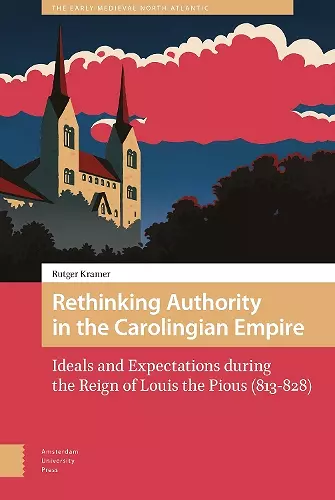Rethinking Authority in the Carolingian Empire
Ideals and Expectations during the Reign of Louis the Pious (813-828)
Format:Hardback
Publisher:Amsterdam University Press
Published:11th Feb '19
Currently unavailable, and unfortunately no date known when it will be back

By the early ninth century, the responsibility for a series of social, religious and political transformations had become an integral part of running the Carolingian empire. This became especially clear when, in 813/4, Louis the Pious and his court seized the momentum generated by their predecessors and broadened the scope of these reforms ever further. These reformers knew they represented a movement greater than the sum of its parts; the interdependence between those wielding imperial authority and those bearing responsibility for ecclesiastical reforms was driven by comprehensive, yet still surprisingly diverse expectations. Taking this diversity as a starting point, this book takes a fresh look at the optimistic first decades of the ninth century. Extrapolating from a series of detailed case studies rather than presenting a new grand narrative, it offers new interpretations of contemporary theories of personal improvement and institutional correctio, and shows the self-awareness of its main instigators as they pondered what it meant to be a good Christian in a good Christian empire.
"In his superb new monograph, Rutger Kramer investigates the origins and manifestations of the striking, consequential self-consciousness of the Carolingian episcopate and argues that it developed during the early years of Louis the Pious's reign. [1] [...] Explicit references to Carolingian self-consciousness appear on nearly every page of Kramer's study. What Kramer shows with astonishing clarity is the extent to which the "Carolingian experiment" was characterized by--indeed, was constituted by--a constant watching, and the implications of this surveillance."
- Courtney M. Booker, The Medieval Review, 21.08.26 (2021)
"There is much to admire here. Kramer’s extensive research is reflected in the copious bibliography. [...] Kramer is clearly aware of the limitations of both his sources and his methodology, but he is also very attuned to the possibilities that this kind of case-study approach might offer."
- Laura Wangerin, Church History, Vol. 91, Iss. 3
ISBN: 9789462982642
Dimensions: unknown
Weight: unknown
278 pages